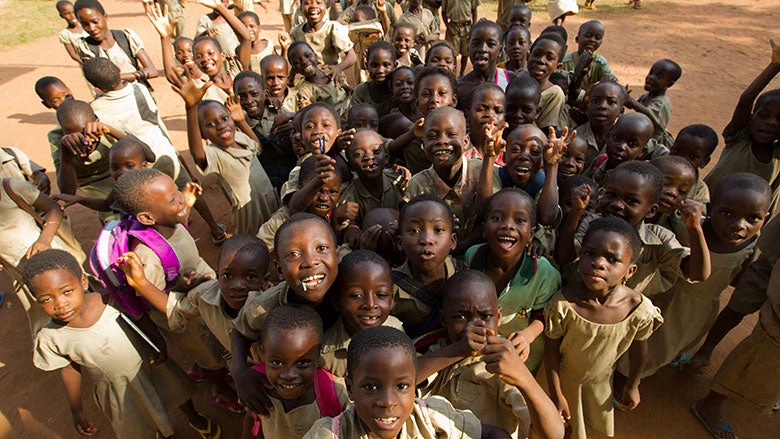
Last week, I wrote about my field visit in October to the agriculture support project in Togo financed by International Development Association (IDA) and the Global Agriculture and Food Security Program (GAFSP). The visit to a rice field and the discussions with rice farmer Komlan Souley and his family revealed some early successes made possible with Bank support, but also underscored the many challenges that remain to help small farmers move out of poverty in a sustainable way and to help Togo’s agriculture become more productive and competitive.
During that visit, my last exchange with Komlan Souley made the greatest impression on me, as it brought together in a very concrete sense, the links between agriculture and other interventions needed to improve prospects for poor rural families over the long term. As we sloshed along a muddy dirt road that led us away from his rice farm, he explained that his son, the one who obtained his baccalaureate, was unable to find a job. He wondered if there was anything the Bank could do to help.
While education is one of the answers to helping poor families exit from poverty, especially in economies where there is a clear correlation between increased education and better incomes or jobs, in the case of Togo the answer is not so clear. Those with more education are more likely to be unemployed or underemployed. Some 4% of those who complete primary education or less education are unemployed, representing about 184,000 out of over 5 million Togolese. For the 630,000 Togolese who complete as much as secondary or undergraduate education, the rate jumps to 15%, or nearly 93,000 people. Meanwhile, some 35% of the workforce is underemployed, compared to less than 3% being unemployed.
Souley’s son is likely to find some work, perhaps helping his father on the farm, or, as many other underemployed in Togo, riding a zemidjan (motorcycle taxi) in an urban area. Which raises the question of how an investment in education can better pay off for the next generation in rural families. Having worked hard to send their children to school, what can be done to help them reap the fruits of their labor not only in terms of improved farm productivity, but also in terms of better opportunities for their children who go to school and complete their education?
The answer to eliminating poverty in Togo and boosting incomes in a sustainable way lies in finding solutions to a whole gamut of issues that prevent the public and private sectors from operating more effectively and generating better opportunities, from the farm to the classroom and beyond. Despite a generally diversified economy—with services and construction driving growth in recent years—agriculture remains the main employer for a majority of Togolese and critical to reducing poverty.
However, given the extent to which food crops with little value-added or transformation dominate the sector, and the comparatively low productivity of both food and cash crops in the country, it is clear that there is need for a transformational shift for farms to become more productive, yield more value-added, and generate better incomes.
Likewise, in terms of the quality of work available for both farm and non-farm workers, it will be impossible to eliminate poverty—or ensure the payoff of education—without seeing a similar shift in employment opportunities made possible by a more dynamic local private sector boosted by a conducive environment for businesses. Ensuring that girls and women also have equal opportunity in the economy is equally crucial given the important role they play as mothers, farmers, and entrepreneurs. Despite their central role, they are more likely to be illiterate and to drop out of secondary school which limits their opportunities and future incomes.
These issues and others related to reducing poverty and boosting shared prosperity are the object of the recent Systematic Country Diagnostic (SCD) for Togo and will be central to the Bank’s future support to the country under the 2017 Country Partnership Framework.


Join the Conversation